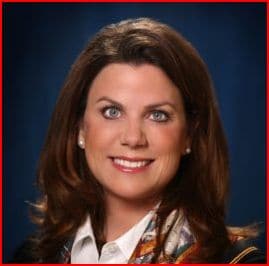
All week long we’ve been interviewing radio CEOs to get their thoughts on whether or not they believe ownership caps at the FCC need to be changed, eliminated, or whether they are fine as they are now. The NAB is working with broadcasters to come up with a plan to present to the Commission next month. Our third interview is with Neuhoff Media CEO Beth Neuhoff.
Radio Ink: Are you in favor or against lifting ownership caps?
Beth Neuhoff: I am in favor of lifting ownership caps.
Radio Ink: Why is that, and do you have a specific number in mind?
Beth Neuhoff: I would like to see ALL caps lifted in market 100+. I can’t address the top 100 situation as that is not where we play but I feel that in mid- to smaller-sized markets, there is simply too much competition for more than two groups to truly be healthy. As controversial as this will be, I actually feel the local markets might be better served with fewer stations altogether. So many stations are now just network jukeboxes on to flank market leaders and potentially eek out some HD 2 revenue thanks to low-power analog translators. I say this knowing we, too, are guilty. Do we lose our ability to be truly local and serve our communities with so many non-viable stations in the mix?
Radio Ink: What are you hearing? Is there a consensus among broadcasters about a final solution?
Beth Neuhoff: I am very encouraged by the rumblings I hear from the NAB Ownership Committee. Though I don’t know their final result, as I am not in that working group, I know they took many divergent opinions and interests and were able to come up with something palatable to most. Getting our industry to agree on the color blue would be a challenge, so my hat is off to them.
Radio Ink: What do you say to the broadcasters who say the first round of deregulation ruined radio?
Beth Neuhoff: I disagree. I think some extremely innovative initiatives have come from deregulation. Deregulation didn’t hurt radio, the strategic move away from local and the rapid proliferation of media choices have been far more detrimental. And frankly, going without any meaningful deregulation since 1996 has done far more to set us back as an industry than the actions of any one consolidated group.
Radio Ink: We’ve heard the argument that caps need to be lifted in order to compete with FB and Google, etc. True they are getting more and more ad money, but do you really think that argument is going to fly? Radio stations in nearly every market are playing so many commercials every hour, yet the revenue never grows. Isn’t the issue really a rate issue?
Beth Neuhoff: I absolutely believe that argument should fly. Forget the prediction that FB and Google will be taking 50% of the ad revenue by 2020 — it’s happening now in many markets across the country. And yet, they are not considered part of our competitive universe. We have long since ceased competing with the station across the street. I understand why the rate game happens — everyone needs to eat, but our pie is getting smaller. The rate issue, in my opinion, is a direct result of too much competition, too many signals, and too much inventory.
Radio Ink: How is more deregulation not a plan for fewer people to take over more stations?
Beth Neuhoff: That could be the end result. Again, let’s let the markets decide. My main concern is that even if we end up with fewer owners, localism and diversity of ownership are preserved.
Radio Ink: Right now, in a lot of markets, owners that have multiple stations throw in the weak ones at no charge, killing the average unit rate and devaluing the product. How would being able to own more stations make that better and not worse?
Beth Neuhoff: Again, completely controversial, but maybe we don’t need all the weak stations. In 1996 there was no Pandora, no Spotify, no Apple music, and Sirius and XM were independent and barely on the radar. It’s the paradox of choice. In five years, if I can find country anywhere — and I certainly will be able to find anything I want on my phone — and I have 50 choices for country in my new car’s dash, why should I choose something that perhaps is no more “local” than its signal? No local personalities, no local events. I personally think the “flanking” business model will kill itself off.
Radio Ink: If deregulation is granted, what or how is the guarantee that what could be a sole owner in a market – no matter the size – will actually better serve the local community?
Beth Neuhoff: There is no guarantee there won’t be bad actors. I can almost assure you there will be those that are only in it for the money and don’t walk the talk. The optimist in me, however, believes the majority of owners will be able to run a business with a healthy bottom line that could be reinvested for growth. The business we are in now – little growth, constantly evaluating expense and staffing – is not economically poised for the future. How can we contemplate greater investment in our properties and communities when, in many cases it seems impossible for owners to make it a profitable venture?
Though our inner cynic may say scale is bad, there are great examples of owners, who through scale, have done great things. We really need look no further than the Alan Bishop example Ed Levine gave Monday. Because Alan “owns” the market, he can do really great local radio AND make a good living. Alan can afford to reinvest in local staff, growing new events and upgrading his equipment to withstand weather events and anything else that comes their way. That’s my hope for our industry’s future.
Radio Ink: Is it true iHeart is basically the only holdout against lifting caps?
Beth Neuhoff: I’m sure they aren’t the only holdout. To iHeart’s credit, they espouse a different business model. Deregulation does very little for them so I get it. I think some smaller, diverse, and perhaps stand-alone interests worry they won’t be able to compete in a consolidated marketplace, but I’m hopeful the NAB committee has suggestions that ameliorate that concern. I welcome different perspectives and know we don’t all see the world the same way. At the end of the day, no one wants to be in the buggy-whip business and no one wants their life’s work to be for naught.
Radio Ink: Look into your crystal ball. What do you think will happen in June?
Beth Neuhoff: I see relief that is very late in coming but welcome all the same. Our industry needs something to help drive up values and spur M&A. Economics 101 says mature industries must consolidate to survive. It’s our time.
Read part one of our series HERE with Ed Levine
Read part two of our series HERE with John Caracciolo
Reach out to Beth Neuhoff at [email protected]






Deregulate the crap out of radio. Give all the stations to iHeart and the ones they don’t want can go to Cumulus. And the listeners? Screw em. They’ll take what we give them.
Isn’t that really going to be the end result? If not, why bother with removing ownership caps? If not, why bother with deregulation?
We understand there are things that need to be updated, but not totally deregulated. Our main opposition is not about the Technical improvements of the AM and FM band. I totally agree that some bureaucratic burdens of many the FCC policies need to be updated, but The biggest issue is to lift the CAP of how many stations a company may own at any market at any given time. That’s the biggest issue.
The FCC could drastically improve the sound of the AM band with an Update on the old archaic laws about its bandwidth. The Technology for AM stereo Receivers is out there. An AM radio signal with enough ban with in Stereo could sound almost as good as an FM one.
There are many statutes on the FCC that are totally obsolete, and they need a make up. If the FCC really wants to create more opportunities, they will allow 10 Watt, 25 watt, 50 watt, 100 watt, 250 watt, and even 300 watt now mini commercial licenses to fit more local radio stations all over the spectrum, but they are going the other way, Instead of creating new Low Power Commercial Concessions to small radio owners, they want to lift the CAP on ownership, so people with money can buy the licenses already on the market. It will be Great with people with money, but what about all those owners who are barely making it?
Isn’t enough the disaster created by Clear Channel, Cumulus, and Other Major Fat Players?
In the Latino Market, When Univison bought the biggest and most important radio stations in the Spanish Market, they killed jobs, increased spot rates, and totally depleted the Mexican Radio business of the quelity of radio that we used to enjoy when most of those venues where programmed and produced locally. They damaged the way we used to do radio as we were used to know it. Now, they soon will be facing the same faith then Clear channel and Cumulus, they will be filing chapter 11. Univision, and Entravision are just one step away to end up bankrupt because their business model its a failure!
This is what really bother us. We don’t want any more of that shit. Enough is enough! Let the small guy create, compete, and thrive with laws that will protect them from huge bullies who will try to buy every thing to asphyxiate the small guys until they quit! Protect their right to exist in the small, median, and big markets!
If the FCC wouldn’t have that CAP in place in 1996, I bet Clear Channel’s economic disaster would have been 10 times worse then what it is right now!! But, thanks to those ownership CAPS, they maxed out their radio properties in most of their market, and it prevent it them from getting into a bigger debt buying more stations with loans that were impossible to pay!
If the FCC lift those CAPS, I bet more Univisons, Entravisions, Ihearts, Cumulues, and many other clusters will form like Cancer Cells form killer TUMORS! Tumors who are toxic! Tumors who bring no bennefit to the body! Tumors who end up killing the very same hosting bady where they were formed! The Cancer Tumors want all the nutrients, all the food, all the blood, and all the space for them selves until they sick the body and totally destroy it!!
If the FCC frees up the ownership rules, it will be like letting all the Cancers cells to free form huge Cancer TUMORS who will end up creating huge toxic masses that will make the Radio industry painfully, and slowly suffer from this FCC’s administration stupidity and mistakes!
Deregulation isn’t just about raising (or dumping) ownership caps to fuel a feeding frenzy for big fish. The FCC ought to toss out antiquated technical standards such as mandatory horizontal polarization. Let licensees and the market decide which or both. Vertical only polarization works great in cars, where most listeners are, and cuts power consumption in half. The BBC abandoned horizontal polarization two decades ago. Also, standard spacing between FM stations across Europe (and much of the civilized world) is 300 or 400 KHz. Who’s served in the US by retaining 800 KHz, still needed only to accommodate cheap receivers built with 1940s selectivity technology? How does an FM translator fit into 400 KHz spacing, without interference, while not a full power station? And lets give local AM radio a kick start by easing a bit the daytime interference contours, and completely deregulating antenna standards… allowing short towers on any frequency (and other creative configurations) that radiate well enough for low-budget start ups.
Why do you Only interview the CEO’s who are in favor of it? Why don’t you interview the local single radio owners who may be slammed out of business if more radio conglomerates buy every single radio in their markets and became huge bullies as iheart, Comulus, Townsquare, and others have become in the last years against the local broadcasters?
I honesty, can not believe how CEO’s with this mini mouse mentally had made it to the top.
May be is because of people like them that our radio industry its really failing.
May be the FCC has to pass a law where incompetent CEO’s may be persecuted and heavily fined for their lock of knowledge ( I am being sarcastic here)
But any way…
Come on Radio INK, You have to offer both parts of the coin. Interview People who is against it. Of course most of the CEO’s are in favor of it. They are radio employees who work for a profit, and their job is to make the radio owner richer under any cost, so its logic that many or all of them will be in favor of this scam. But ask the people who may go out of business when only two or three radio groups own the entire AM and FM radio spectrum in their markets to see if they will like it or not!